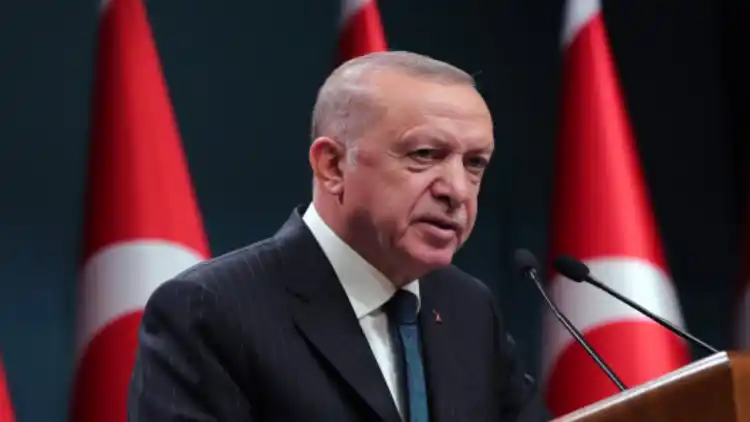
Dr Shujaat Ali Quadri
As Afghanistan welcomes installation of Taliban’s Islamic Emirate in Afghanistan, the list of countries that emerge as losers after 20 years of futile and barbaric war include Turkey. Under its pompous President Recep Tayyip Erdogan, Turkey tries to poke its nose into the affairs of almost every Muslim country at the slightest hint of a brewing conflict. Turkey played smart in Afghanistan as well. While its army was part of the invader NATO forces, Turkey maintained contacts with all the warring sides --- US, its allies, the Northern alliance, the governments of Hamid Karzai and Ashraf Ghani and even recently the Taliban.
For six years, the Americans were in charge of the security of the Kabul airport. However, as NATO was preparing to leave and the question of who takes care of Kabul airport’s security came, even before Kabul was to be captured by the Taliban on 15 August, the Turkish forces offered to stay out. The forces kept waiting for orders as the US and British forces took charge to evacuate their nationals out of Afghanistan.
The Turkish forces came forward to take reins of the airport. However, the Taliban, who had earlier promised to allow this in exchange for the logistical support and infrastructure rebuilding, snubbed them. They were told to remain in a standby position and not allowed to take charge.
Turkish foreign policymakers have a history of their rhetoric being distant from the realities on the ground. The move to engage with the Taliban is hazardous – even more so if Turkey recognises the Taliban government.
Many structural issues will probably impede Turkey’s ambitious role in Afghanistan. First, Erdogan will have to deal with the expected rush of Afghan refugees moving toward the country’s eastern border. Domestically, nationalist fever and anti-immigrant tension have been running high in the context of the Syrian refugee influx. Foreign policy adventurism has been a great tool to distract from domestic failings, but its efficacy is waning as challenges mount for Erdogan.
Seen in the light of a spiraling economic situation, many policy failures on the Covid-19 pandemic, and the recent bushfires in southern Turkey, it is unlikely that Erdogan can afford another risky foreign policy blunder.
Turkey has sealed its borders for Afghan refugees, the European Union has also offered cash incentives to it to stop the rush of refugees into Europe. The money could alleviate some of the pressure that Erdogan feels. This is more important for him in view of the 2023 election where Erdogan’s and his party’s position is precarious. Securing another term on Turkey’s 100th anniversary is an important milestone for Erdogan’s legacy.
Currently, Turkey hosts around 300,000 Afghan refugees. So Turkey has the third largest Afghan refugees after Pakistan and Iran. Turkey already has the biggest baggage of Syrian refugees to tackle.
Turkey finds itself with fewer allies and friends. Unilateral actions in Syria, Libya, and Azerbaijan point to a foreign policy that is reactionary and opportunist. Turkey’s pursuit of a “stabilising and mediating” role in Afghanistan appears to be another pipe dream – the risks by far outweigh the benefits.
The international community has yet to decide how to deal with the new Taliban regime and views Turkey’s pursuit of relations with the Taliban with caution. Turkey may find itself dragged into a costly military engagement and isolated once again for the sake of economic opportunities and trying to bring itself into the good graces of allies and friends it has previously cast aside.
When the Taliban had made advances in some areas, famous Uzbek origin warlord and first vice-president of Afghanistan, General Abdul Rasheed Dostum, disappeared from the scene. He was later spotted in Turkey, undergoing treatment for undeclared ailments. Recently, he landed in Mazar-e-Sharif in a private Turkish airplane. His forces are said to have given fiercest resistance to the Taliban. Ultimately, he and another warlord Noor Ata Mohammed, have reached Turkey via a CIS country.
Their fate hangs in balance as Turkey negotiates with the new Taliban regime. Dostum’s failure ensured that Erdogan will not be able to bend the Taliban into giving Turkey control of Kabul airport and provide it inroads into Central Asia via Afghanistan.
However, despite its failures in Afghanistan, Turkey, unlike all its NATO countries, has kept its embassy in Kabul operational and its diplomats are in regular contact with the Taliban. Turkey will also likely be among the foremost countries to recognise the Taliban regime.
(The Author is National President of Muslim Students Organisation of India)
